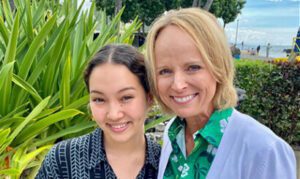The need for access, equity and belonging remains critical, as we continue to bear witness to the devastating effects of discrimination and injustice on our communities. As the chairs of the 4‑H Program Leaders Working Group, Access, Equity and Belonging Committee (AEBC), we believe that the Cooperative Extension System is ideally placed to advance the important work of ensuring access, equity and belonging amongst our youth.
The purpose of the Committee is to support the 4‑H System’s opportunity statement.
- reaching 10 million youth who fully reflect the demographics and social conditions of the nation by 2027;
- providing opportunities for all 4‑H youth that are grounded in Positive Youth Development;
- embracing the rich diversity of the youth, families and communities that comprise our nation; and
- working to close the widening gap in wellbeing and economic prosperity for youth and communities.
We believe that when we build a more inclusive, diverse and equitable organization, all 4‑H members will excel in social mobility and communities will thrive.
Access refers to ensuring that everyone has the opportunity to take part in all Extension programs and activities. Studies have shown that youth who enjoy access to diverse cultures and experiences show “evidence of enhanced learning and better preparation for participation in a democratic society, and generally possess enhanced cognitive skills along with a clearer sense of identity.” [1]
Equity means giving everyone the same opportunities in life by eliminating the barriers that exist for marginalized members of society. While equality aims to provide the same things to all people, equity considers that different people need different things in order to enjoy full and healthy lives.
Belonging is a feeling of community. When we feel like we belong, we can be our authentic selves and are comfortable speaking out as we don’t fear retaliation. Belonging has shown to have a positive impact on young people, as they feel more engaged and motivated if they believe that they are valued for their unique contributions.
We encourage you to engage with our three online self-directed modules, which are designed for Extension administrators, 4‑H professionals and volunteers who would like to create a more inclusive organizational culture:
- Module One: Introduces foundational terms related to cultural competencies and equitable practices (Extension administrators/4‑H professionals).
- Module Two: Explores the dimensions of culture (Extension administrators/4‑H professionals).
- Module Three: Describes how to work toward cultural competency; lists the attitudes, skills and knowledge that are required to be culturally responsive; and explains how to recognize and improve an organizational culture (Volunteers).
Our website also offers curated resources and materials to supplement the learning from the modules.
Authentic dialogue and the development of one’s cultural competencies and empathy require lifelong self-reflection, learning about diverse groups and communities, and a commitment to better understanding the historical barriers that exist for marginalized groups in society. Please join us on our exciting journey to provide every young person with an equal opportunity to succeed!
[1] Office of the University Provost | Middle Tennessee State University (mtsu.edu)
















